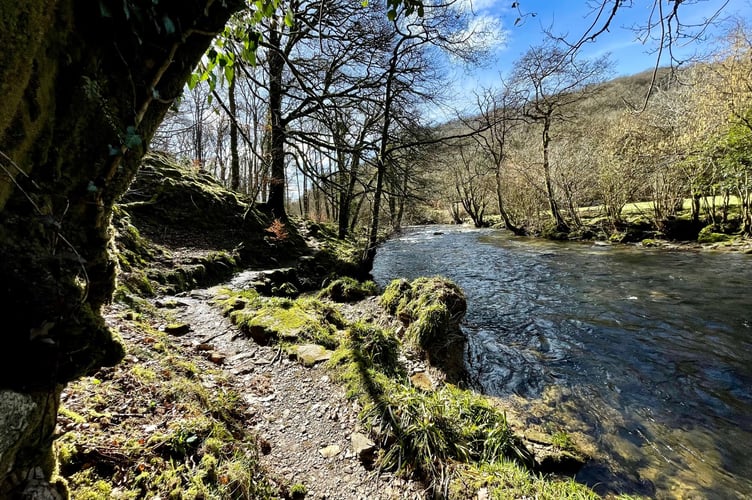A HIDDEN threat from pharmaceutical pollution in rivers on Exmoor has been discovered through research supported by Westcountry Rivers Trust (WRT).
The study from the University of York and the Rivers Trust of 10 National Parks in England highlights concerning contamination of park rivers, with drugs such as antidepressants, anticonvulsants, antimicrobials, anti-inflammatory substances, lipid regulators and diabetes treatments detected in tests.
In Exmoor, concentrations of pharmaceuticals at Exford rated higher than seen in major cities such as London while other locations had levels potentially harmful to fish, invertebrates, and algae, and sufficient to contribute to antibiotic resistance which poses a risk to human health.
WRT’s Evidence and Engagement Officer, and analytical chemist, Ian Townsend, who conducted water quality testing on Dartmoor, said: “In this highly medicated world, the contamination of rivers, lakes and streams with pharmaceutical residues is a truly global phenomenon and even the notionally pristine rivers of our precious National Parks, including Dartmoor and Exmoor, are clearly not immune.”
Of the four Exmoor sample sites, a location on the River Exe at Exford returned as the most polluted and had the second highest level of pharmaceuticals seen in the whole study.
It is noted that sampling on Exmoor occurred during a period of exceptionally low river flow, which would have reduced the dilution of the pharmaceuticals, it highlights the challenge that the predicted future increase in the frequency of droughts will bring.
Several reasons such as lower dilution, lower connectivity to sewage treatment systems, older and less high-tech treatment of sewage, more elderly residents and seasonal population surges due to tourism all influence why park rivers are more polluted than might be expected.
Dr Rob Collins, Director of Policy and Science at the Rivers Trust, who conducted testing on Exmoor, highlighted several approaches that need to be taken to address the issue.
He said: “While we need to see greater investment into traditional wastewater treatment, more natural treatment technologies such as wetlands can also play an important role, particularly in these more rural environments where there is the room to implement such nature-based solutions.
“It is also important that the maintenance and management of septic tanks is improved, and that new Government rules on this are enforced, while few people are aware of medicine take-back schemes whereby any unopened, unused and out-of-date medicines, can be taken to the local pharmacy, rather than flushed down the toilet and into the sewer system.”
Dr John Wilkinson, Lecturer in Environmental Science in the Department of Environment and Geography at the University of York, explained the way people interact with wild spaces means national parks and their communities are particularly vulnerable.
He said: “Because there is a closer connectivity of people to the environment through recreational activities in national parks, such as wild swimming, there could be a far greater threat to human health there too.
“It is so important that we gather more monitoring data to allow us to measure active pharmaceutical ingredients more accurately.”
Visit wrt.org.uk/exmoor-dartmoor-national-parks-rivers-polluted-by-pharmaceuticals/ to read the full report.




